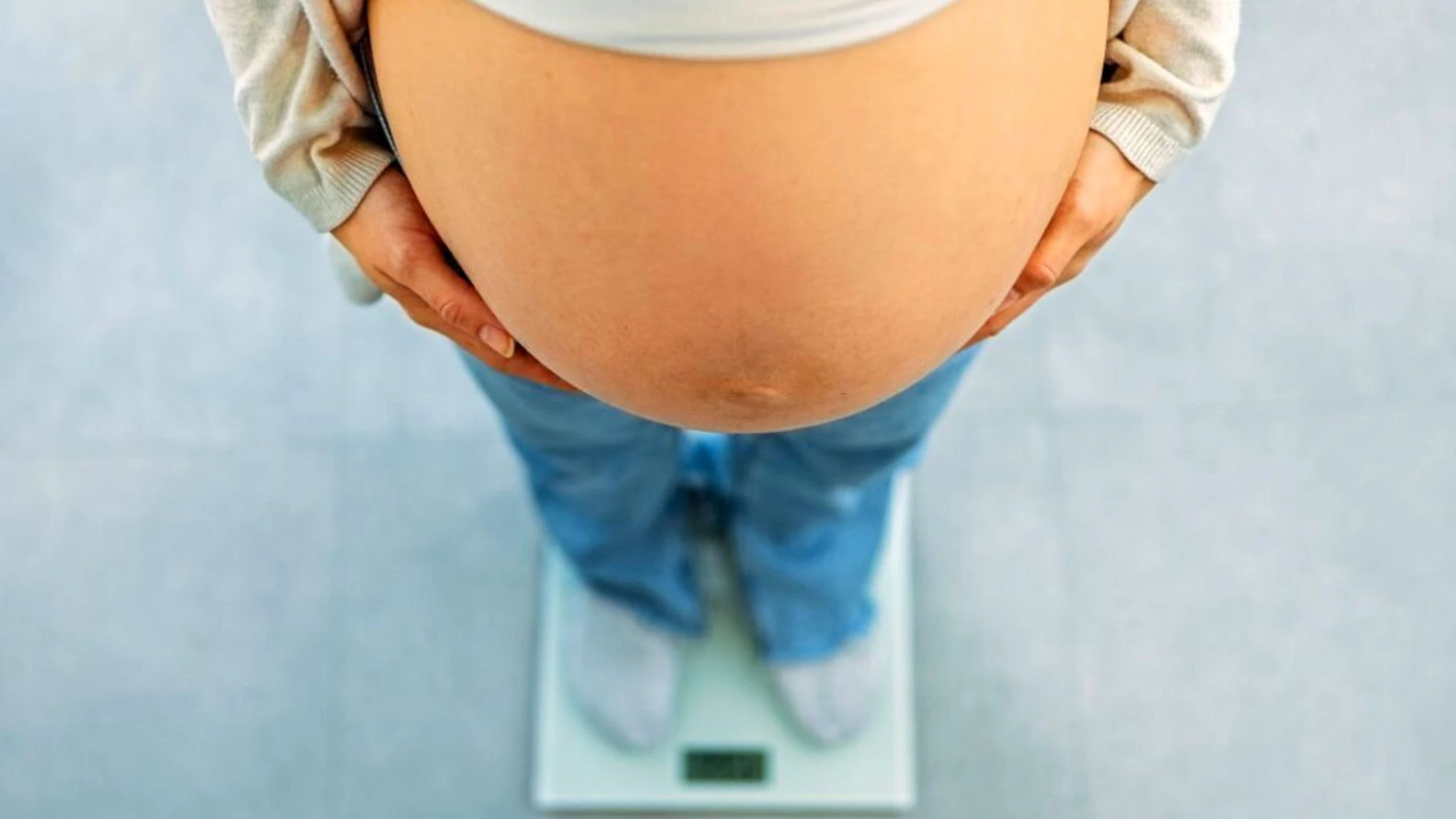Weight Gain During Pregnancy: All You Need To Know!

If you are planning for pregnancy, it is necessary to understand the normal body weight range before conceiving. Your weight can play an important role in deciding the further course of your pregnancy and thereby the health of your child. If you are already suffering from obesity or anorexia, it is mandatory to learn about the ideal parameters of weight during gestation.
In the following article, you will be provided with details of ideal weight gain during pregnancy based on the Body Mass Index. Afterward, we’ll discuss some of the factors that lead to pregnancy weight gain and how to effectively manage it. The article also details the risk factors associated with excessive weight gain and underweight conditions in pregnancy. So dive right into the article.
Normal Weight Gain During Pregnancy
The normal weight gain is calculated based on the Body Mass Index of each person before pregnancy. When you are pregnant, you naturally gain weight between 22 pounds (10kg) and 28 pounds ( 12.5kg).

According to the Centres for Disease Control and Prevention, BMI, or Body Mass Index is calculated by dividing a person’s weight into kilograms or pounds by the square of height in feet or meters. Below is a table of the ideal weight gain recommendation based on the Body Mass Index before pregnancy. Check out the table here.
| BMI before pregnancy | Ideal weight you should gain |
| Underweight where BMI is less than 18.5 | You should gain 28-40 pounds |
| Normal weight where BMI is between 18.5-24.9 | You should gain 25-35 pounds |
| Overweight, where BMI is between 25.0-29.9 | You should gain 15-25 pounds |
| Obese category where BMI is greater than or equal to 30.0 | You should gain 11-20 pounds |
This table is prepared based on the data collected from the Institute of Medicine. If you are pregnant with twins, the weight range can be different. Please consult your doctor in this case.
Factors that cause weight gain during pregnancy
Many factors can affect weight gain during pregnancy. Some of them are listed below:
- Age of the mother: One of the factors that affect weight gain during pregnancy is maternal age. Many studies have provided evidence that Excessive Gestational Weight Gain (EGWG) is more prevalent among younger women than older women.
- Prepregnancy weight: Prepregnancy weight is the amount of weight during conception. Studies have shown that the higher the prepregnancy weight, the higher the weight gain during pregnancy can be.
- Physical activities and exercise: Pregnant women who don’t engage in physical activities tend to gain more weight during pregnancy.
- Race or ethnicity: A study published in the Annals of Epidemiology in 2014 found that there is a connection between race and gestational weight gain.
- Parity: Another factor that contributes to gestational weight gain is parity. By parity, it means the number of offspring born to a woman. For women who had given birth to more than one child, weight gain was not evident.
- Hormonal balance: One of the factors that affect gestational weight gain is hormones. Studies have shown that hormones such as insulin and leptin can play a crucial role in weight gain in pregnant women.
How to manage weight during pregnancy?
Women who are already obese or overweight can gain serious weight when they are pregnant. Also, women, who are of normal weight can have an increased chance of weight gain if proper care hasn’t been taken.
Here are some of the tips that can help you to manage weight gain during pregnancy.




- Bring healthy changes in your diet: Pregnancy can be a difficult time to keep up with healthy diets. Most people experience cravings and unnatural appetites during this time. If you experience such cravings or a tendency to snack, try to replace unhealthy snacks with healthy ones. Choose fruits and vegetables as snacks as they can provide the necessary nutrients for you and your baby.
- Drink more water: Water can help relieve symptoms such as constipation associated with pregnancy. According to the American College of Obstetricians and Gynecologists, a pregnant woman should drink 8-12 cups of water every day. Drinking water can help with digestion and circulation of nutrients all over the body.
- Engage in simple exercises: Many doctors suggest at least spending 10 minutes on activities such as walking. Staying active can help in maintaining weight and also relieve you from certain aches and pains associated with pregnancy.
- Avoid certain foods: While keeping a healthy diet is important, there are certain foods to avoid when you are pregnant. Some of these are artificial sweeteners, foods with corn syrup, junk foods, high-fat items, etc.
- Check your weight often: One of the ways to keep your weight inside the borders is to log your weight often. Write the weight down somewhere and check whether there is a rise or decline.
Related article: Newborn Weight Gain – Get Rid Of All Your Doubts!
Risk factors for too much weight gain during pregnancy⚠️
There are certain risk factors associated with too much weight gain during pregnancy. Studies have shown that “eating for two” which is a common practice during pregnancy can result in obesity and overweight conditions.
This can be detrimental to the health of both the mother and baby. Some of the risk factors associated with weight gain during pregnancy are given below:
- You start experiencing more leg cramps, backaches, exhaustion, etc.
- You are more prone to developing diabetes.
- It can lead to complications in delivery.
- You might need more time to lose the weight gained from pregnancy.
- Your baby can also have an increased chance of health issues such as childhood obesity.
Risk factors for being underweight during pregnancy⚠️
When the Body Mass Index of pregnant women is below 18.5, it means that they are underweight. Many risk factors are associated with being underweight when you are pregnant. Some of them are given below:
- Chances of miscarriage.
- Premature birth.
- Baby born with lower birth weight.
- Gastroschisis- a condition in which the stomach of the baby doesn’t grow sufficiently.
- Intrauterine Growth Restriction (IUGR)- a condition in which the fetus doesn’t grow as expected.
- A higher chance of mortality risk for both the mother and child.
Final Thoughts
Based on the facts mentioned above, one can conclude that a weight gain that ranges from 22-28 pounds is considered normal during pregnancy. The ideal weight to be gained during pregnancy differs for each woman. This is calculated based on the Body Mass Index of the person before conceiving. Several factors can affect weight gain during pregnancy.
Some of them are maternal age, physical fitness, weight, parity, race, etc. Having too much weight or too little weight during pregnancy can be detrimental to one’s health as it can lead to further complications. By incorporating healthy eating styles and mild forms of exercise, one can maintain a healthy weight during pregnancy.
You might also like to read: Pregnant Belly VS Fat Belly: Know The Difference





